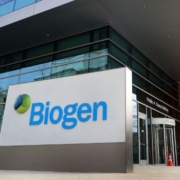Two life sciences powerhouses are coming together to develop an off-the-shelf beta cell replacement therapy for insulin-dependent diabetes patients, which they hope will become a functional cure for both types of the disease.
Biogen is bolstering the company’s multiple sclerosis pipeline through a licensing agreement with Maine-based MedRhythms for its investigational digital therapeutic MR-004, which is being assessed for the potential treatment of gait deficits in MS.
AbbVie and Plexium Enter Into Multi-Target Strategic Collaboration To Develop and Commercialize Targeted Protein Degradation Therapies for Neurological Conditions
AbbVie, Biopharma Companies, Business, Collaboration, Collaborations, Neurological Conditions, Neurology, Neuroloigcal Disorders, Protein degradation, R&D, R&DPlexium Inc. and AbbVie Inc. entered into an exclusive strategic collaboration to develop and commercialize novel Targeted Protein Degradation (TPD) therapeutics for neurological conditions.
California-based Dren Bio and Pfizer partnered on a deal valued at more than $1 billion to discover and develop therapeutic bispecific antibodies for select oncology targets.
With more than 1,000 clinical trials for cell and gene therapies in process and predictions that such products will generate $12 billion in revenue annually by 2025, leaders for pharmaceutical companies and health plans must consider how to make gene therapies financially accessible to those who need them. According to Cotiviti Executive Vice President of Operations Jordan Bazinsky, this is an opportunity to explore a new paradigm for reimbursement for complex therapies—one that is informed by collaborative partnership, with careful consideration of the best way to pay for value.
Autolus Therapeutics is receiving as much as $250 million in funding after signing a collaboration deal with Blackstone Life Sciences to support the company’s cancer treatment research.
In a flurry of activity, multiple biopharma companies made their first appearance on the Nasdaq Stock Exchange on June 25, raising hundreds of millions of dollars to advance the development of next-generation therapeutics and scale their businesses.
Seattle-based clinical-stage biopharmaceutical company Lumen Bioscience is teaming up with Novo Nordisk to explore research and development opportunities within obesity, among other metabolic disorders.
UnitedHealthcare announced a community-based initiative, Community Catalyst, that convenes a broad range of community stakeholders to identify and address specific health care needs of members of the community and residents of publicly assisted housing who are often difficult to reach and serve.
Xilio Therapeutics is evaluating the company’s tumor-selective anti-CTLA-4 antibody XTX101 with Merck’s programmed death receptor-1 therapy Keytruda (pembrolizumab). The clinical trial – which will be conducted by Xilio – will assess XTX101’s safety and efficacy as a monotherapy, as well as in combination with Keytruda, in solid tumors.









